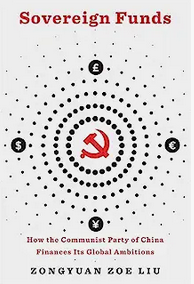I read Dan Wang’s Breakneck: China’s Quest to Engineer the Future, which some people I follow (like Henry Farrell and Richard Jones among others) have already reviewed. It is, as they have said, a very interesting read – much more about China than about America, although the contrast he paints between the two is clear. The core of that contrast is that China’s leadership consists of engineers, and they focus on getting things built, while America’s consist of lawyers, who focus on stopping things.
However, the point Wang makes is subtler than ‘engineering good, lawyering bad’, although China’s success in building infrastructure and developing manufacturing industry has delivered astonishing increases in living standards. For, as a couple of chapters emphasise, the engineering mindset can go badly awry when applied to social issues – the one child policy and the covid lockdowns are the examples.
Nevertheless, there are lessons for the US (and the rest) in China’s approach. He writes: “[China] embraced a vision of technology radically different from Silicon Valley’s: the pursuit of physical and industrial technologies rather than virtual ones like social media or e-commerce platforms. In China. technology is not represented by shiny objects; rather, it is embodied by communities of engineering practice like Shenzen, where technoogy lives inside the heads and hands of the workforce.” This seems spot on in identifying a relative weakness of the US and UK models, both of which overlooked the importance of keeping those communities rooted at home. One of my favourite papers is Gregory Tassey’s in the 2014 Journal of Economic Perspectives, making this point. It also reminded me of Dan Breznitz’s point about the different pathways for industrial policy, and Silicon Valley not being the obvious model to emulate.
Another lesson for both countries lies in their contrasting but equally unappealing urban forms – China with its soul-less new mega-block developments and America with its bland suburbs. Neither seems to manage dense, walkable, attractive neighbourhoods on the whole – in China, Wang lived in the attractive French Concession area of Shanghai, an exception to the rule. Here is one dimension where many European countries do better than either superpower, as Chris Arnade often points out.
My other reflection on Breakout – which is a must-read – is that it already seems dated by recent developments in US politics. There are now many things the lawyers are not stopping, although still much that the engineers are not doing either. In the long run the lessons of both countries’ recent past will be relevant for economic growth and technological advance, but the short run seems much murkier than it did even a few months ago.



